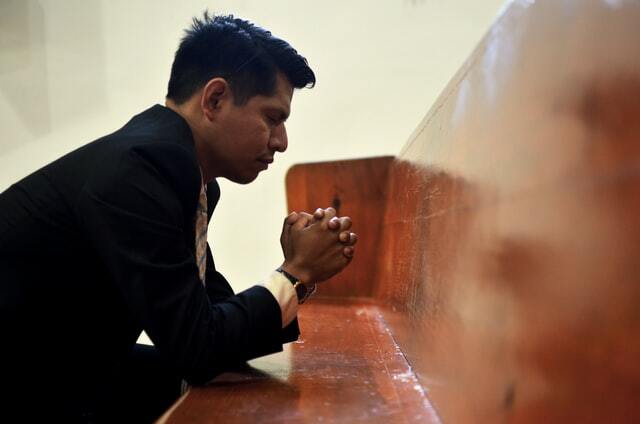
Prayer is a holy weapon in the hands of the people of God. It is more powerful than the sword, the bomb or even the pen and even more effective than the worldwide internet and other modern media outlets of communication which move people to action.
Martin Luther said “this little word ‘Father’, lisped forth in prayer by a child of God, exceeds the eloquence of Demosthenes, Cicero and all others so famed orators in the world“. This is because the Bible from Genesis to Revelation speaks about effective and powerful prayer that prevails with God and moves his hand.
The Bible teaches us that prayer is at the forefront of God’s work. Prayer is not a supplement to God’s work; it is God’s work and an important and essential part of every spiritual ministry. Whatever is begun for God must first begin with prayer and then carried out through prayer (Acts 13:1-3).
It was the Methodist, Samuel Chadwick who said, ‘prayer is the mightiest force in the universe of God’. While Tertullian, said ‘we knock at heaven and the merciful heart of God flies open, for the holy violence we offer to Him in prayer is very pleasing to him’.
The Secret Place
Sincere prayer has to do with the secret place and being alone with God. It is the place of tears as well as faith. There are answers to prayer that the people of God will not have if they fail to ask or if they are too busy to be on their knees in earnest supplication with the door shut.
It is pertinent to say as E J Alexander, “prayer is not an alibi for doing nothing, simply or mainly, asking God for things we need, or a mechanical recitation of a form of words which we have learned. It is definitely not the preserve of the ‘elite’ and is not confined to certain holy places”. I also add, nor is it helped by the use of beads or wheels or candles but it is all about fellowship with Our Father in heaven through the Son aided by the ministry of the Holy Spirit.
The Whole Heart
True prayer requires that one prays with one’s head, i.e. with one’s mind and with the understanding that flows from acceptable communion with God. Paul said, “For if I pray… I will pray with the spirit, and I will also pray with the understanding” (1 Cor. 14:12). This is because prayer that is effective is prayer whose request is full of desire articulated not only from the heart but from the head also.
When the Apostles asked Jesus to ‘teach us to pray’ they were putting themselves into a school of prayer which was to last their lifetime. He taught them the Lord’s Prayer which can be seen to divide into sections embracing, relationship, (‘Our Father in heaven’); respect and reverential fear (‘Hallowed be Your name’); petition, (‘Your kingdom come’); desire, (‘Your will be done on earth as it is in heaven’); intercession (‘Give us this day our daily bread’…etc).
Our Saviour teaches us to engage with God through the mind as well as the heart. This is especially important as emotional prayer is not the whole content of powerful prayer – although important and a required essential element – it requires head, heart and hope (born of faith) to stand in the gap before God.
Was this why the Psalmist whispered, “Teach me your way, O Lord; I will walk in Your truth; “Unite my heart to fear Your name” (Ps. 86:11). This is because he is seeking to achieve that unity of heart, mind and will that produces a clear conscience.
When, our heart and our will are not united but the mind knows God is worthy of praise and our full obedience, we must yield to his will for us. This Psalmist was humble, showing honest desire to learn that he might be engaged spiritually in heart, soul and, mind with God.
The Holy Spirit calls us to true piety and a prayer life that will be powerful before God. This every Christian can attain by, praying always…in the Spirit (Eph. 6:18).
Rev Ian S McNaughton is presently serving as the Vice-Chairman of Barnabas Fund in the UK.
Photo by Sam Rios on Unsplash
For Other Articles by Rev Ian S McNaughton
Praying in the Spirit









